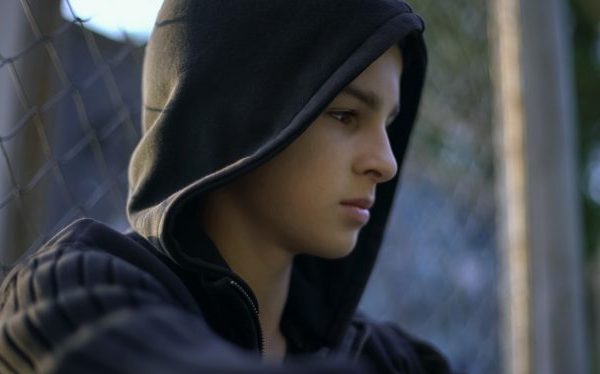
The government must invest in specialist placements to reform a care system not working for vulnerable teenagers and protect them from exploitation.
That was a key message from a 14-month review into preventing vulnerable young people from being drawn into gangs and violence, led by former Children’s Commissioner for England Anne Longfield.
In its final report, published last week, the Commission on Young Lives found young people at risk were identified late and placed in unsuitable residential settings, often far from home, or in foster placements designed for younger children.
Agencies were often unable to safeguard these teenagers because of a confusion over their role in protecting them and inadequate joint working, leading to “poor decisions and major gaps in support”, it said.
Alongside reforming placements for teenagers in care, the commission also urged the government to invest in intensive family support to prevent young people from entering care or being drawn into gangs.
‘Horror stories’
Longfield called teenagers’ criminal exploitation a “national threat to our country’s prosperity and security” .
“Speak to youth workers in our towns, and cities and they will tell you their own horror stories,” she said.
“Of young people being chased in broad daylight by other teenagers waving machetes, of homes where the young people involved in the drugs trade are the main breadwinner in the family, of communities where organised criminals seek out and groom very vulnerable children who have fallen through gaps in the care, health, or education systems, almost with impunity.”
Government statistics on children in need, published last month, revealed that, in 2021-22, local authorities detected 16,000 instances of child sexual exploitation, 11,600 of gang activity and 10,140 of child criminal exploitation following assessment.
The commission’s report said these statistics were likely to be “the tip of the iceberg”, while it also highlighted the growth in the number of older children entering care.
From 2012-13 to 2018-19 there was a 26% increase in the number of 13- to 17-year-olds entering the care system, according to figures produced by Longfield in 2021, when she was Children’s Commissioner. As of March 2021, 10- to 15-year-olds accounted for 39% of children in care, and those over 16 23%, according to government statistics.
A care system not working for teenagers

Photo; motortion/Adobe Stock
However, the commission’s report found that the care system had “failed to keep up with the needs of the growing profile of teenagers in care”, notably through the predominance of family-based foster care designed for younger children.
While the number of children’s homes had grown over the past few years, the report found there was “a chronic shortage of places for teenagers”, and that these were unevenly distributed around the country.
As a result, teenagers were often placed out of area, increasing isolation and leaving them at greater risk of being exploited or going missing.
Children aged 12 and above were also more likely than younger children to have more than two placements a year, according to previous research by Longfield, which the commission’s report said increased their feelings of loss and instability.
The shortage of children’s home placements had led to a growing use of unregulated placements – now reserved for 16- and 17-year-olds – that were often unsafe or inappropriate for their needs.
To make the care system more tailored to teenagers’ needs, the commission recommended:
- Creating 300 new local children’s homes or converting them from unregulated provision, which would support 1,500 teenagers.
- Recruiting and training 2,000 specialist youth foster carers for teenagers unable to live with their family or whilst on remand.
- Supporting 3,000 families to provide kinship care for teenagers.
It estimated councils would need £60m for the recruitment, training and support of the youth foster carers and £600m for establishing new children’s homes.
Families ‘ignored’ by services

(credit: Romolo Tavani / Adobe Stock)
The commission also found that families felt “ignored or left with nowhere to turn when their children become at risk of gang involvement, serious violence, and criminal exploitation”.
High thresholds, driven by a lack of funding, meant families came up against a “patchwork of services” that were over-subscribed and lacked coherence.
When they did have contact with services, they often experienced repeat assessments, high turnover of professionals and early closures of cases.
“The experience of parents told a consistent tale of missed opportunities, unmet need, and a confused tangle of services,” wrote the report.
To tackle this, it proposed a support service to work with these families to prevent children being drawn into gangs or being taken into care. This would be delivered through schools or “Sure Start Plus” hubs – centres which the report proposed the government create to provide co-ordinated support for teenagers. Other recommendations included:
- Tackling poverty – which the report said was a key driver of crime and exploitation – by uprating family benefits in line with inflation, ending the two-child benefit cap and extending free school meals to families on universal credit.
- Identifying and removing racial biases in the youth justice, care and educational systems, as black children are disproportionately likely to be excluded, affected by criminal exploitation, taken into care and involved in the youth justice system. This should include action to recruit more black, Asian and ethnic minority social workers, foster carers, youth workers and teachers.
- A shift to a “trauma-informed youth justice system”, including by replacing young offender institutions with secure schools and children’s homes.
- Recruiting 10,000 youth practitioners to provide positive activities and develop long-term relationships with children at risk of exploitation.
Funding call comes as government plans spending cuts
The commission estimated its recommendations would cost the government £1.94bn over the first three years and £600m a year from then on. But its report comes before spending cuts are due to be announced by chancellor Jeremy Hunt in his autumn statement next week.
In response to the report, the Association of Directors of Children’s Services said the commission’s proposals for investment in youth services, youth justice and social care needed to be prioritised.

ADCS president Steve Crocker (credit: ADCS)
“The country is facing many competing challenges including the ongoing impact of the pandemic and a cost of living crisis and the chancellor will have some tough decisions to make,” said ADCS president Steve Crocker.
“However, children must not bear the brunt of austerity again; the financial and human costs would be too great. Now is the time for ‘a return to investing in children and their families’ and the services that support them, not a return to austerity.”
SPACE, an organisation which works to tackle child criminal exploitation, including by supporting families, said the commission’s recommendations were “well-intentioned” but had significant gaps.
These included how to address “impossibly high” local authority intervention thresholds, services not providing support out of hours, youth workers lacking skills to work with exploited young people and serious case review recommendations being “repeatedly ignored”.
Councils responsible for protecting children – DfE
In its response to the commission’s report, a Department for Education (DfE) spokesperson said local authorities were responsible for protecting vulnerable children, adding councils were receiving an extra £4.8bn in government grant from 2022-25. This was part of a settlement set out in 2021 that ministers had promised would increase councils’ budgets by 3% a year in real terms.
However, this figure includes funding to reform the adult social care charging system, which cannot be used for existing services and may be removed should the government, as predicted, delay these changes. And the value of the settlement has been eroded significantly since 2021 by much higher than expected rates of inflation this year.
The spokesperson also pointed to the £300m from 2022-25 the government has provided to set up family hubs in 75 areas, offering a range of services, particularly for families with pre-school children.
Over the same period, the DfE is providing another £700m for the supporting families programme, which is designed to help families with multiple needs, with support co-ordinated through a key worker.
‘Lack of strategic approach’
Following the commission’s report, public spending watchdog issued a report on support for vulnerable adolescents, which concluded that a it was not possible for the government to know if services to improve outcomes for the group were value for money.
It identified that ministers had committed an extra £2bn from 2022-25 on additional programmes, channelled through seven departments, to support families, vulnerable adolescents and children, including the money for supporting families and money for holiday activities and youth services.
But it found the government lacked a strategic approach and sufficient knowledge of what worked to tackle adverse outcomes for vulnerable young people.
It urged ministers to address gaps in the evidence base on what works to improve lives for the group, improve data sharing to enhance knowledge of the links between risk factors and poor outcomes and, by June 2023, agree cross-government targets.



 A trauma-informed approach to social work: practice tips
A trauma-informed approach to social work: practice tips  Problem gambling: how to recognise the warning signs
Problem gambling: how to recognise the warning signs 




 Find out how to develop your emotional resilience with our free downloadable guide
Find out how to develop your emotional resilience with our free downloadable guide  Develop your social work career with Community Care’s Careers and Training Guide
Develop your social work career with Community Care’s Careers and Training Guide  ‘Dear Sajid Javid: please end the inappropriate detention of autistic people and those with learning disabilities’
‘Dear Sajid Javid: please end the inappropriate detention of autistic people and those with learning disabilities’ Ofsted calls for power to scrutinise children’s home groups
Ofsted calls for power to scrutinise children’s home groups Seven in eight commissioners paying below ‘minimum rate for home care’
Seven in eight commissioners paying below ‘minimum rate for home care’
 Facebook
Facebook X
X LinkedIn
LinkedIn Instagram
Instagram
Makes me laugh we closed down preventive services and youth services around the country with all the experience workers who have moved on.
This government is a joke and this is ever linked to austerity and budget cuts and spending money on the wrong services.